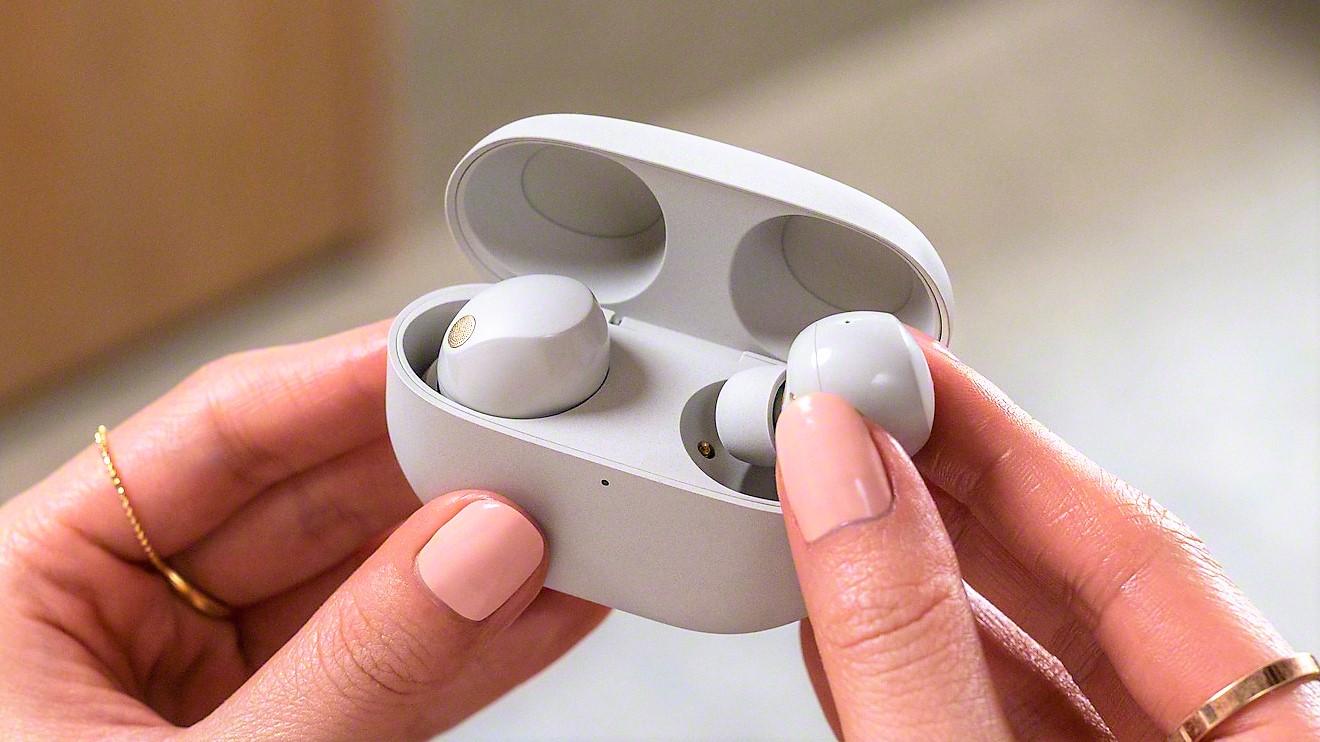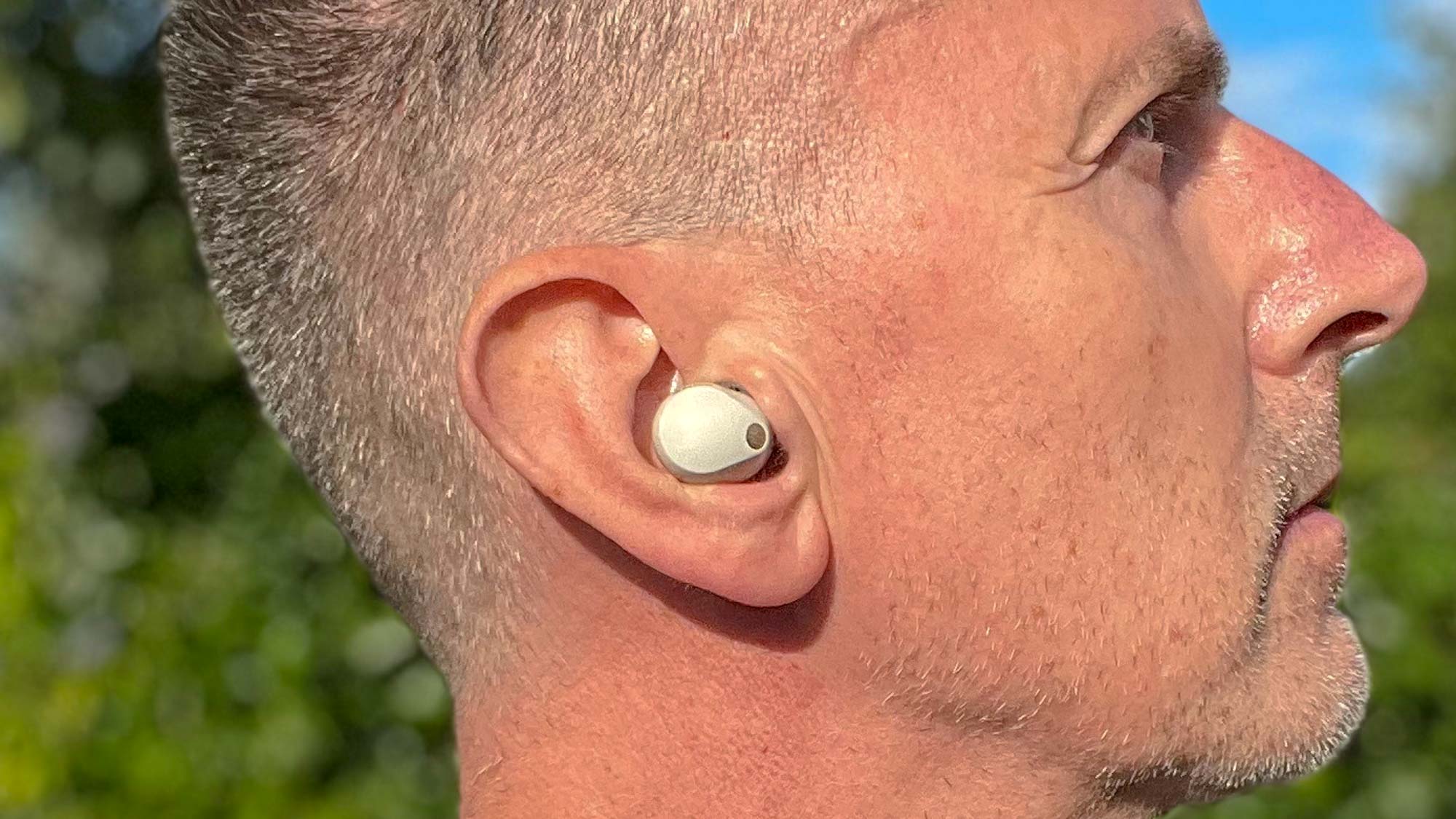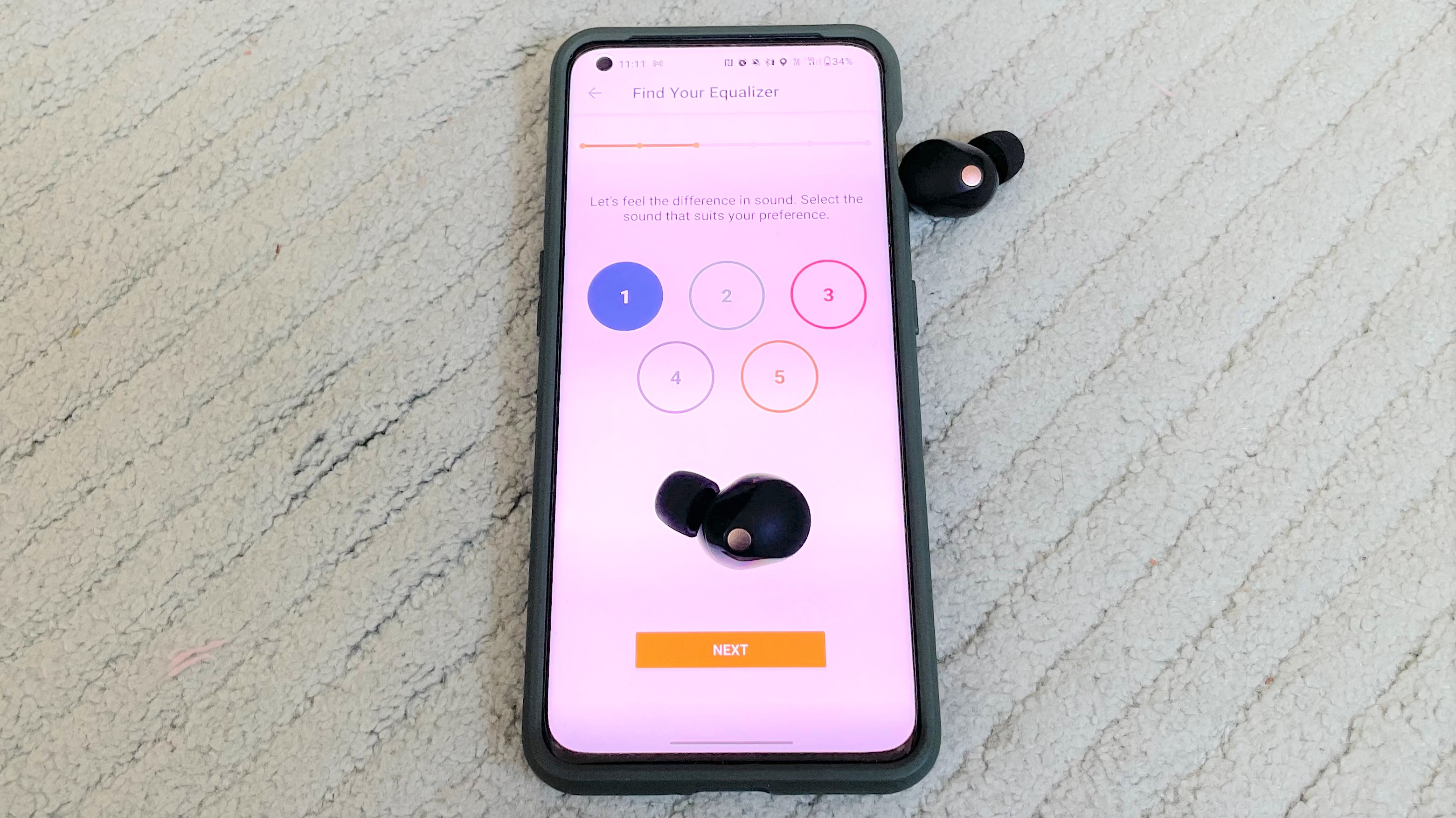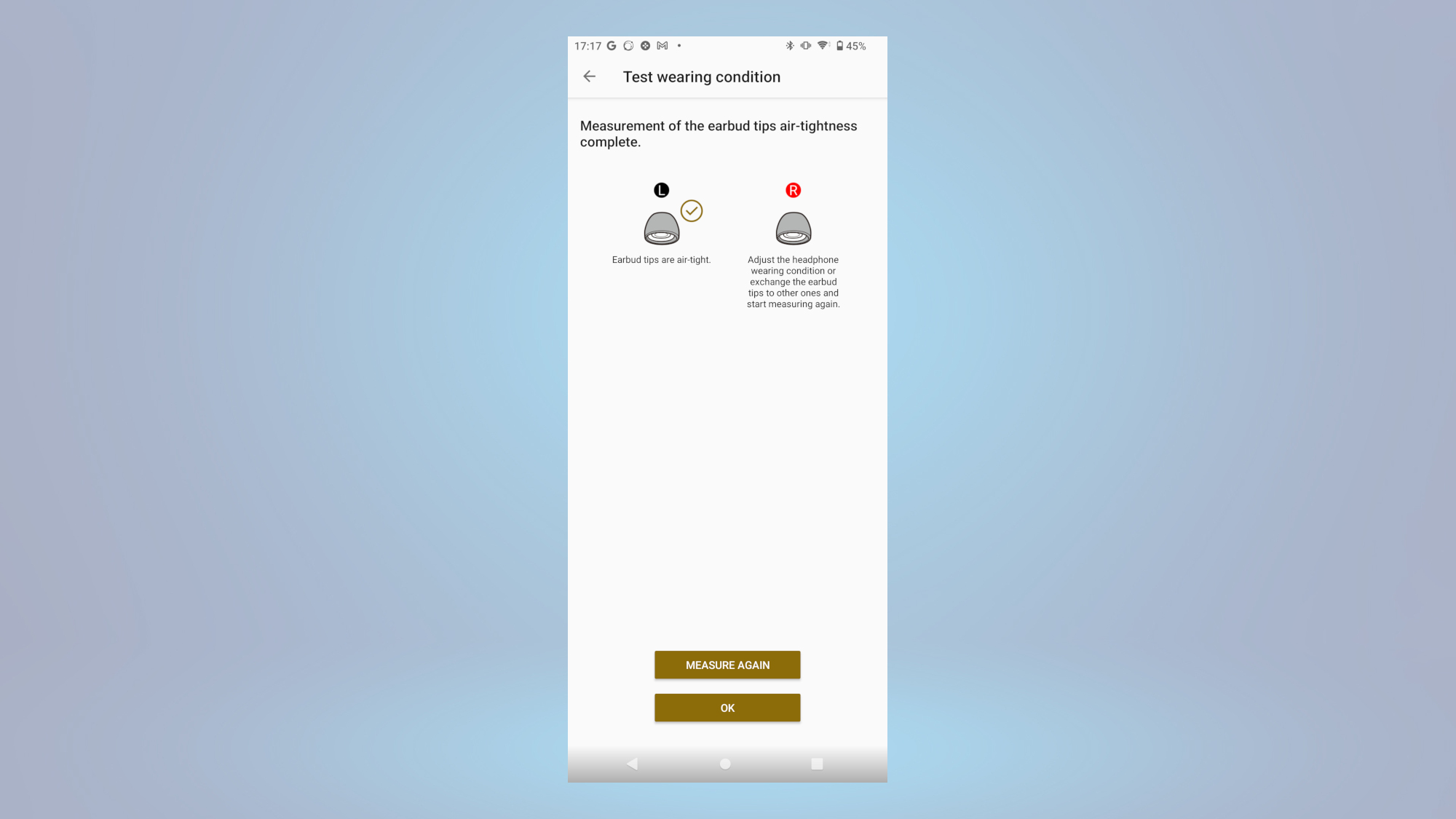5 things I love about the Sony WF-1000XM5 noise-canceling earbuds — and one I don't
The Sony WF-1000XM5 wireless earbuds are mostly great, but I can't believe they got this one thing so wrong

I was fortunate to get to hold of one of the very first pairs of the new Sony WF-1000XM5 wireless earbuds ahead of the official launch that took place earlier this week on July 24. With over a month of living with Sony's newest wireless earbuds under my belt, the eagerly anticipated next-gen flagship version has really impressed me. In fact, so much so that I've ranked them top in the best wireless earbuds you can buy right right. I've also rated them as one of the best noise-cancelling earbuds I've heard, and they outperformed Apple's best earbuds in our Sony WF-1000XM5 vs AirPods Pro 2 face-off.
With some of the strongest feature sets I've seen on any a pair of wireless earbuds via the awesome Sony Headphones Connect app that now has spatial audio support, the new design elevates the listening experience beyond any other wireless earbuds I've heard.
The new Sony WF-1000XM5 earbuds are one of my favorite wireless packages so far this year. With this in mind, here are 5 things I love about the WF-1000XM5, and the one thing I find hard to understand is how Sony got it so wrong.
What I love about the Sony WF-1000XM5
1. Best-ever sound quality

The new Sony WF-1000XM5 'buds are priced at $299 / £259 / AU$499, making them far too pricey for the best cheap wireless earbuds. To my mind, if you're looking at spending this sort of money on any pair of wireless earbuds, then you're the kind of listener who will want the best sound.
Of course, there are other factors to consider like noise canceling performance, and comfort levels at the price. But if you prioritize sound quality, rest assured that the Sony WF-1000XM5 wireless earbuds won't let you down.
If you prioritize sound quality , rest assured that the Sony WF-1000XM5 wireless earbuds won't let you down.
Along with LDAC support that offers high-quality Bluetooth streams (up to 990kbps) when connected to compatible audio devices, Sony has upgraded the processor fitted inside the XM5 to a more powerful V2 version. This brings greater control over audio signal handling and noise canceling performance along with more robust Bluetooth connectivity including multipoint and low energy audio support (more on that below). Combined with a new Dynamic Driver X fitted into each earbud that uses different materials for the dome and the edge, the new Sonys deliver a rich bass sound with low distortion and more natural sounding vocals than the WF-100XM4.
The wide frequency range results in some of the most realistic-sounding vocals I've heard. During my listening tests, voices had more presence and a sense of realism, making familiar tracks sound subtly different at the same time.
2. Improved adaptive noise-canceling

The WF-1000XM5 noise-canceling tech claims to reduce ambient noise by approximately 20% more than it did with the Sony WF-1000XM4. That's obviously difficult for us to accurately measure, but the combination of the more powerful Sony V2 chipset and HD Noise Canceling processor controlling the six microphones across both ears certainly does seem to deliver remarkably effective results, and easily ranks as one of the best noise-canceling earbuds out there.
What's even better though is that the noise-canceling settings can auto adjust on the fly based on the noise of your surroundings. During my tests traveling to and from the office or out at a noisy exercise gym, the adaptive tech was effective and seamlessly adjusted the level of noise cancelation as I moved between different environments.
3. Find your equalizer

Admittedly, the default EQ had what felt like a remarkably well-balanced sound during my tests, but for anyone seeking a more personalized sound Sony has introduced Find My Equalizer. The new option was in beta mode when I tried it out, but should appear under the Sound tab of the Headphones Connect app when the firmware gets updated for the arrival of the XM5. Unlike some personalization settings I've experienced, the Sony app allows you to play your own music and then select the sound you prefer from five options.
There are multiple screens that tackle different parts of the frequency spectrum to let you find the sound balance that's closest to your tastes. Your sound balance choices are saved to the Custom 2 profile in the Equalizer. Find My Equalizer personalization can be updated as often as you like.
4. Speak-to-chat

Speak-to-Chat was one of my favorite features on the WF-1000XM4, and I am happy to see it implemented on the new flagship. This feature uses the mics and advanced signal processing to recognize your voice, pausing music and enabling transparency mode automatically when the mics, along with the bone conduction sensors, detect a conversation.
As useful as this AI feature is in the right setting, it's not without issues if you happen to suddenly be in a chatty environment. The sensitive mics can quickly cut whatever you're listening to when you have the feature enabled and it can detect even the quietest conversation nearby. It's perhaps not suitable to have speak-to-chat permanently enabled, but in the right circumstance, I found it incredibly helpful.
5. Multipoint connectivity and spatial audio

Multipoint connectivity lets you pair two Bluetooth devices simultaneously, meaning that when a call comes in the earbuds automatically know which device is ringing and connect to the right one. Bluetooth LE Audio is also supported, bringing energy efficiency benefits while the latest Bluetooth 5.3 support gives the WF-1000XM5 one the most robust connectivity possible right now.
As the name suggests, Sony's new personalized 360 Reality Audio is designed to make an individual sound profile adjusted to your ears using the camera on a smartphone to take measurements. Much like Apple's head-tracking support with spatial audio content, Sony's new head-tracking feature uses sensors and spatial technology to deliver immersive sound for augmented reality games. This ensures sounds are conveyed from different directions to line up perfectly with the action on the screen for a more immersive experience.
Sadly though, the app has been unable to detect my right ear so far during my tests. It's important to point out though that despite some frustrations in trying to test this feature, this isn't my main gripe — more on that below.
What I don't love about the Sony WF-1000XM5
Sony WH-1000XM5 eartip fit issues

It's very handy having the Sony’s Optimal Earbud Tips to test the fit. I found though that I needed to continually take the test to check that I was getting a good fit for the best acoustic seal for the noise canceling and adaptive sound features to work effectively. The right earbud often seemed to be a problem, and I regularly needed to make appropriate adjustments to get the fit correct. It often took several attempts to get an optimum seal.
Why I hold this against the WF-1000XM5 is because this isn't something I've ever encountered with the Sony WF-1000XM4 or with the AirPods Pro 2, where I still wear the medium-sized eartips and get a perfect fit and seal every time.
I regularly needed to make appropriate adjustments to get the fit correct.
Additionally, I found the WF-1000XM5 unsuitable for running and I wouldn't rank them among the best running headphones.
This wasn't because of any issues with the fit though; they remained firmly in place without any slippage. But the sound of my feet pounding the ground transferred into the earbuds, making every step and jog thud loudly in my ears as the microphonic effect of the new eartips and smaller buds case seemed to amplify vibrations more noticeably.
Despite the fit issues and channeling the sound of my footsteps loudly in my ears on my runs, the Sony WF-1000XM5 are one of the best-sounding earbuds I've heard so far this year. If you can stretch to the slightly increased cost, they are one of the best wireless earbuds around right now.
More from Tom's Guide
Sign up to get the BEST of Tom's Guide direct to your inbox.
Get instant access to breaking news, the hottest reviews, great deals and helpful tips.

After 2.5 years as Tom's Guide's audio editor, Lee has joined the passionate audio experts at audiograde.uk where he writes about luxury audio and Hi-Fi. As a former editor of the U.K.'s Hi-Fi Choice magazine, Lee is passionate about all kinds of audio tech and has been providing sound advice to enable consumers to make informed buying decisions since he joined Which? magazine as a product tester in the 1990s. Lee covers all things audio for Tom's Guide, including headphones, wireless speakers and soundbars and loves to connect and share the mindfulness benefits that listening to music in the very best quality can bring.
